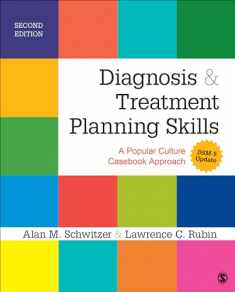
Developing Your Theoretical Orientation in Counseling and Psychotherapy (What's New in Counseling)
ISBN-13:
9780134805726
ISBN-10:
0134805720
Edition:
4
Author:
Duane Halbur, Kimberly Halbur
Publication date:
2018
Publisher:
Pearson
Format:
Paperback
144 pages
Category:
Counseling
,
Psychology & Counseling
,
Counseling
,
Psychology
,
Counseling
,
Schools & Teaching
FREE US shipping
on ALL non-marketplace orders
Rent
35 days
Due May 25, 2024
35 days
from $26.61
USD
Marketplace
from $72.32
USD
Marketplace offers
Seller
Condition
Note
Seller
Condition
Used - Good
Book details
ISBN-13:
9780134805726
ISBN-10:
0134805720
Edition:
4
Author:
Duane Halbur, Kimberly Halbur
Publication date:
2018
Publisher:
Pearson
Format:
Paperback
144 pages
Category:
Counseling
,
Psychology & Counseling
,
Counseling
,
Psychology
,
Counseling
,
Schools & Teaching
Summary
Developing Your Theoretical Orientation in Counseling and Psychotherapy (What's New in Counseling) (ISBN-13: 9780134805726 and ISBN-10: 0134805720), written by authors
Duane Halbur, Kimberly Halbur, was published by Pearson in 2018.
With an overall rating of 4.3 stars, it's a notable title among other
Counseling
(Psychology & Counseling, Counseling, Psychology, Counseling, Schools & Teaching) books. You can easily purchase or rent Developing Your Theoretical Orientation in Counseling and Psychotherapy (What's New in Counseling) (Paperback) from BooksRun,
along with many other new and used
Counseling
books
and textbooks.
And, if you're looking to sell your copy, our current buyback offer is $30.45.
Description
An interactive guide for helping professionals choose a theoretical orientation
Appropriate for mental health counselors, psychologists, social workers, school counselors, substance abuse counselors, psychotherapists, and peer helpers, Developing Your Theoretical Orientation in Counseling and Psychotherapy helps readers find a theoretical orientation aligned with their personal values and worldview. Theories are presented in the text in a way that allows the reader to identify quickly the philosophical and cultural foundations of the theories while also accessing the theories’ goals and techniques.
The 4th Edition is updated to include, among other things, a deeper discussion of the implications of empirically validated treatments and a new review of the implications of common-factor approaches.
Appropriate for mental health counselors, psychologists, social workers, school counselors, substance abuse counselors, psychotherapists, and peer helpers, Developing Your Theoretical Orientation in Counseling and Psychotherapy helps readers find a theoretical orientation aligned with their personal values and worldview. Theories are presented in the text in a way that allows the reader to identify quickly the philosophical and cultural foundations of the theories while also accessing the theories’ goals and techniques.
The 4th Edition is updated to include, among other things, a deeper discussion of the implications of empirically validated treatments and a new review of the implications of common-factor approaches.


We would LOVE it if you could help us and other readers by reviewing the book
Book review

Congratulations! We have received your book review.
{user}
{createdAt}
by {truncated_author}




